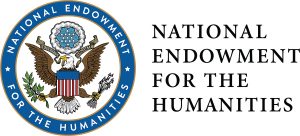Grand Staircase-Escalante Symposium 2022
Ways of Understanding and Protecting
Land and Water Resources in the
Grand Staircase-Escalante Region
March 3-4, 2022
Co-hosted by ERWP and
Southern Utah University

Presentation video links are provided in the agenda below for each session.

Purpose
Bring together land managers, Tribes, researchers, conservation groups and interested public to gain knowledge and discuss multiple perspectives on land and water, ecosystem management issues, and ways people engage with the landscape.
Geographic Focus
The landscape of the Grand Staircase-Escalante region, from the high plateaus of the Dixie National Forest and Bryce Canyon National Park down through the benchlands, valleys and canyons of Grand Staircase-Escalante National Monument and Glen Canyon National Recreation Area.

Presentation Recordings
Day 1 (March 3, 2022)
Introduction: Videos available here
- Laura Daniel-Davis, Acting Assistant Secretary for Land and Minerals Management, US Department of Interior
- Frank Hall and Jackie Grant, Southern Utah University
- Land Acknowledgement – Sarah Bauman
- Sarah Bauman and Linda Whitham, Escalante River Watershed Partnership
Indigenous Perspectives on the Land: Videos available here
- Poetry by Navajo Nation Poet Laureate – Laura Tohe
- Kaibab Paiute Environment Department – Daniel Bulletts
- Perspective from a Dine’ Land Steward – Davina Smith
- Discussion moderated by Sarah Bauman
Ecosystem Management – Challenges and Opportunities: Videos available here
- Issues of management and science in Paria River District – Harry Barber
- Management issues for Dixie National Forest – Kevin Wright & Terry De Lay
- Management issues for Bryce Canyon National Park – Tyra Olstad & Brett Cockrell
- Management issues for Glen Canyon National Recreation Area – Kendall Neisess
- Tribal perspective on land management – Angelita Bulletts
- Ecosystem management from a conservationist’s perspective – Laura Welp
- Discussion moderated by Sharon Buccino
Ecology and Biodiversity: Videos available here
- GSENM and Regional Plant Conservation in Utah – Walt Fertig
- Biological surveys in GSENM – Jackie Grant
- Biodiversity, fungi, symbiosis at Upper Sand Creek RNA – Steve Leavitt
- Connect wildlife and habitat across the Colorado Plateau – Aaron Facka & Lindsay Martindale
- AIM efforts across the BLM Paria River District – Raven Chavez & Meghan Krott
- Discussion moderated by Sarah Barga
Day 2 (March 4, 2022)
Water Resources – Status and Concerns: Videos available here
- Poetry and Place – Laura Walker
- Springs from Indigenous perspective – Stewart Koyiyumptewa
- Hanging garden springs of southern Utah – Arnold Clifford
- Springs of Grand Staircase-Escalante National Monument – Larry Stevens
- Forest Service wetlands and fen monitoring – Natalie Cabrera
- Discussion moderated by Marc Coles-Ritchie
Using Native Plants: Videos available here
- Native plant materials development – Adrienne Pilmanis
- Growing native plants and seed saving from Southern Paiute perspective – Autumn Gillard
- Edible plants of Hopi – Max Taylor
- Discussion moderated by Becca Lieberg
Where Do We Go From Here – Management Planning and Opportunities for Engagement: Videos available here
- Looking behind and looking beyond – Ed Kabotie, music available here
- Tribal engagement – Valerie Russell
- Indigenous perspective on where we go from here – Hank Stevens
- Status of GSENM land management planning process and how to engage – Vicki Tyler
- Youth engagement and partnerships to help get the work done – Briget Eastep
- Volunteering and Citizen Science – Kaitlin Martin, Audrey Kruse, & Jackie Grant
- Partnership successes and opportunities – Sarah Bauman
- Discussion moderated by Carolyn Shelton

The Ways of Understanding and Protecting Land and Water Resources in the Grand Staircase-Escalante Region symposium has been made possible in part by a grant from Utah Humanities and the National Endowment for the Humanities: Democracy demands wisdom.




